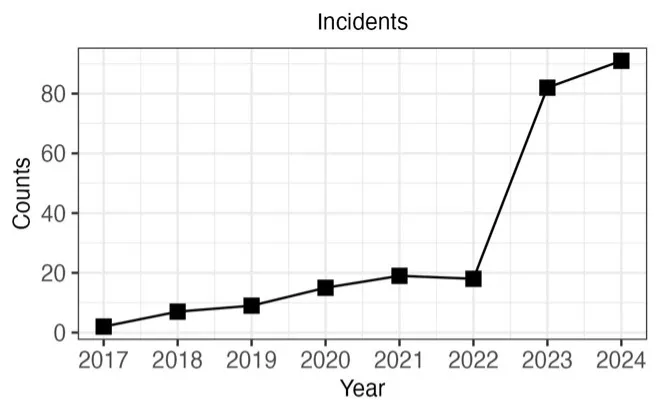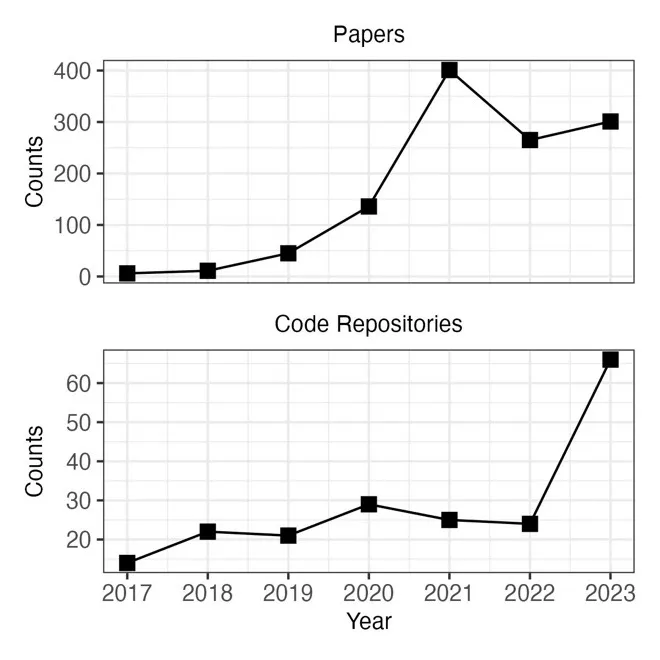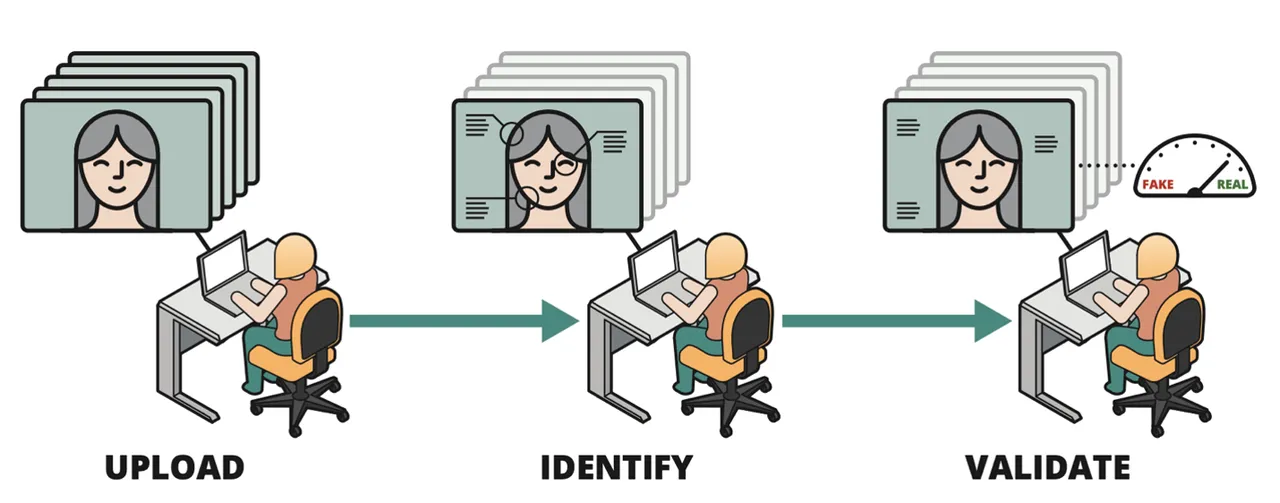
This put up can be written by Vedha Avali, Genavieve Chick, and Kevin Kurian.
On daily basis, new examples of deepfakes are surfacing. Some are supposed to be entertaining or humorous, however many are supposed to deceive. Early deepfake assaults focused public figures. Nonetheless, companies, authorities organizations, and healthcare entities have additionally grow to be prime targets. A current evaluation discovered that barely greater than half of companies in america and the UK have been targets of monetary scams powered by deepfake expertise, with 43 p.c falling sufferer to such assaults. On the nationwide safety entrance, deepfakes could be weaponized, enabling the dissemination of misinformation, disinformation, and malinformation (MDM).
It’s troublesome, however not unimaginable, to detect deepfakes with the help of machine intelligence. Nonetheless, detection strategies should proceed to evolve as era methods grow to be more and more subtle. To counter the menace posed by deepfakes, our crew of researchers within the SEI’s CERT Division has developed a software program framework for forgery detection. On this weblog put up we element the evolving deepfake panorama, together with the framework we developed to fight this menace.
The Evolution of Deepfakes
We outline deepfakes as follows:
Deepfakes use deep neural networks to create lifelike pictures or movies of individuals saying or doing issues they by no means stated or did in actual life. The approach includes coaching a mannequin on a big dataset of pictures or movies of a goal individual after which utilizing the mannequin to generate new content material that convincingly imitates the individual’s voice or facial expressions.
Deepfakes are a part of a rising physique of generative AI capabilities that may be manipulated for deceit in data operations. Because the AI capabilities enhance, the strategies of manipulating data grow to be ever more durable to detect. They embody the next:
- Audio manipulation digitally alters features of an audio recording to switch its that means. This could contain altering the pitch, period, quantity, or different properties of the audio sign. Lately, deep neural networks have been used to create extremely lifelike audio samples of individuals saying issues they by no means truly stated.
- Picture manipulation is the method of digitally altering features of a picture to switch its look and that means. This could contain altering the looks of objects or folks in a picture. Lately, deep neural networks have been used to generate completely new pictures that aren’t based mostly on real-world objects or scenes.
- Textual content era includes the usage of deep neural networks, corresponding to recurrent neural networks and transformer-based fashions, to supply authentic-looking textual content that appears to have been written by a human. These methods can replicate the writing and talking fashion of people, making the generated textual content seem extra plausible.
A Rising Drawback
Determine 1 beneath exhibits the annual variety of reported or recognized deepfake incidents based mostly on information from the AIAAIC (AI, Algorithmic, and Automation Incidents and Controversies) and the AI Incident Database. From 2017, when deepfakes first emerged, to 2022, there was a gradual enhance in incidents. Nonetheless, from 2022 to 2023, there was a virtually five-fold enhance. The projected variety of incidents for 2024 exceeds that of 2023, suggesting that the heightened stage of assaults seen in 2023 is more likely to grow to be the brand new norm slightly than an exception.
Most incidents concerned public misinformation (60 p.c), adopted by defamation (15 p.c), fraud (10 p.c), exploitation (8 p.c), and identification theft (7 p.c). Political figures and organizations have been essentially the most steadily focused (54 p.c), with further assaults occurring within the media sector (28 p.c), trade (9 p.c), and the non-public sector (8 p.c).
An Evolving Menace
Determine 2 beneath exhibits the cumulative variety of tutorial publications on deepfake era from the Net of Science. From 2017 to 2019, there was a gentle enhance in publications on deepfake era. The publication charge surged throughout 2019 and has remained on the elevated stage ever since. The determine additionally exhibits the cumulative variety of open-source code repositories for deepfake era from GitHub. The variety of repositories for creating deepfakes has elevated together with the variety of publications. Thus, deepfake era strategies are extra succesful and extra obtainable than ever earlier than prior to now.
Throughout this analysis, 4 foundational architectures for deepfake era have emerged:
- Variational auto encoders (VAE). A VAE consists of an encoder and a decoder. The encoder learns to map inputs from the unique house (i.e., a picture) to a lower-dimensional latent illustration, whereas the decoder learns to reconstruct a simulacrum of the unique enter from this latent house. In deepfake era, an enter from the attacker is processed by the encoder, and the decoder—skilled with footage of the sufferer—reconstructs the supply sign to match the sufferer’s look and traits. Not like its precursor, the autoencoder (AE), which maps inputs to a hard and fast level within the latent house, the VAE maps inputs to a chance distribution. This permits the VAE to generate smoother, extra pure outputs with fewer discontinuities and artifacts.
- Generative adversarial networks (GANs). GANs include two neural networks, a generator and a discriminator, competing in a zero-sum recreation. The generator creates pretend information, corresponding to pictures of faces, whereas the discriminator evaluates the authenticity of the info created by the generator. Each networks enhance over time, resulting in extremely lifelike generated content material. Following coaching, the generator is used to supply synthetic faces.
- Diffusion fashions (DM). Diffusion refers to a technique the place information, corresponding to pictures, are progressively corrupted by including noise. A mannequin is skilled to sequentially denoise these blurred pictures. As soon as the denoising mannequin has been skilled, it may be used for era by ranging from a picture composed completely of noise, and regularly refining it by way of the realized denoising course of. DMs can produce extremely detailed and photorealistic pictures. The denoising course of can be conditioned on textual content inputs, permitting DMs to supply outputs based mostly on particular descriptions of objects or scenes.
- Transformers. The transformer structure makes use of a self-attention mechanism to make clear the that means of tokens based mostly on their context. For instance, the that means of phrases in a sentence. Transformers efficient for pure language processing (NLP) due to sequential dependencies current in language. Transformers are additionally utilized in text-to-speech (TTS) programs to seize sequential dependencies current in audio alerts, permitting for the creation of lifelike audio deepfakes. Moreover, transformers underlie multimodal programs like DALL-E, which might generate pictures from textual content descriptions.
These architectures have distinct strengths and limitations, which have implications for his or her use. VAEs and GANs stay essentially the most extensively used strategies, however DMs are growing in reputation. These fashions can generate photorealistic pictures and movies, and their capability to include data from textual content descriptions into the era course of provides customers distinctive management over the outputs. Moreover, DMs can create lifelike faces, our bodies, and even total scenes. The standard and inventive management allowed by DMs allow extra tailor-made and complex deepfake assaults than beforehand doable.
Legislating Deepfakes
To counter the menace posed by deepfakes and, extra essentially, to outline the boundaries for his or her authorized use, federal and state governments have pursued laws to control deepfakes. Since 2019, 27 deepfake-related items of federal laws have been launched. About half of those contain how deepfakes could also be used, specializing in the areas of grownup content material, politics, mental property, and client safety. The remaining payments name for experiences and activity forces to check the analysis, improvement, and use of deepfakes. Sadly, makes an attempt at federal laws usually are not holding tempo with advances in deepfake era strategies and the expansion of deepfake assaults. Of the 27 payments which were launched, solely 5 have been enacted into legislation.
On the state stage, 286 payments have been launched through the 2024 legislative session. These payments predominantly concentrate on regulating deepfakes within the areas of grownup content material, politics, and fraud, they usually sought to strengthen deepfake analysis and public literacy.
These legislative actions characterize progress in establishing boundaries for the suitable use of deepfake applied sciences and penalties for his or her misuse. Nonetheless, for these legal guidelines to be efficient, authorities should be able to detecting deepfake content material—and this functionality will rely upon entry to efficient instruments.
A New Framework for Detecting Deepfakes
The nationwide safety dangers related to the rise in deepfake era methods and use have been acknowledged by each the federal authorities and the Division of Protection. Attackers can use these methods to unfold MDM with the intent of influencing U.S. political processes or undermining U.S. pursuits. To handle this situation, the U.S. authorities has carried out laws to boost consciousness and comprehension of those threats. Our crew of researchers within the SEI’s CERT Division have developed a device for establishing the authenticity of multimedia property, together with pictures, video, and audio. Our device is constructed on three guiding ideas:
- Automation to allow deployment at scale for tens of hundreds of movies
- Combined-initiative to harness human and machine intelligence
- Ensemble methods to permit for a multi-tiered detection technique
The determine beneath illustrates how these ideas are built-in right into a human-centered workflow for digital media authentication. The analyst can add a number of movies that includes a person. Our device compares the individual in every video in opposition to a database of identified people. If a match is discovered, the device annotates the person’s identification. The analyst can then select from a number of deepfake detectors, that are skilled to establish spatial, temporal, multimodal, and physiological abnormalities. If any detectors discover abnormalities, the device flags the content material for additional evaluation.
The device allows speedy triage of picture and video information. Given the huge quantity of footage uploaded to multimedia websites and social media platforms day by day, that is a vital functionality. By utilizing the device, organizations could make the perfect use of their human capital by directing analyst consideration to essentially the most important multimedia property.
Work with Us to Mitigate Your Group’s Deepfake Menace
Over the previous decade, there have been outstanding advances in generative AI, together with the power to create and manipulate pictures and movies of human faces. Whereas there are respectable functions for these deepfake applied sciences, they can be weaponized to deceive people, corporations, and the general public.
Technical options like deepfake detectors are wanted to guard people and organizations in opposition to the deepfake menace. However technical options usually are not sufficient. It is usually essential to extend folks’s consciousness of the deepfake menace by offering trade, client, legislation enforcement, and public schooling.
As you develop a method to guard your group and other people from deepfakes, we’re able to share our instruments, experiences, and classes realized.






